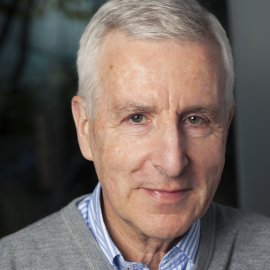Philosophy, Emeritus Director of Research at the CNRS, France

Octobre 2015 à Juin 2016
Gad FREUDENTHAL was born in Jerusalem in 1944. He studied at the Hebrew University – first mathematics and physics, later also history and philosophy of science. He left Israel in the mid-1970s and settled in France, where he obtained his PhD.
In 1982 he was recruited to the CNRS, where he researched notably the history of medieval science and philosophy in Jewish cultures, highlighting their relationships to the majority cultures (Muslim and Christian).
"The Appropriation and Naturalization of Scientific Thought within Medieval Jewish Traditions. Lessons on Overcoming Fundamentalism from the 12th-15th Centuries"
During the second half of the 12th century, the Jewish communities in the Midi underwent a cultural upheaval. From a culture entirely committed to traditional, Talmudic and midrashic learning, it became a culture that harbored a thriving scientific-philosophic activity in Hebrew, based on translations of classical works of the Greco-Arabic tradition. This cultural change profoundly modified the very meaning of learning – the Jewish male’s noblest activity – and indeed of the very telos of Jewish life. We have to do with the inception of a profound acculturation that forever changed the face of Provençal Jewry and, indeed, of Judaism tout court. The introduction of the scientific-philosophic frame of mind into Judaism, the switch from a particularistic to a universalist worldview, ran against strong opposition, giving rise to lasting disputes: at bottom was the hermeneutic question whether a non-literalist interpretation of the authoritative canonic texts of Judaism is permissible. The goal of my research will be to go beyond a mere factual account of this change, trying to account for it, notably in sociological terms. The understanding of how this profound cultural change occurred will indirectly provide some insights into the nature of religious fundamentalism and its possible overcoming.